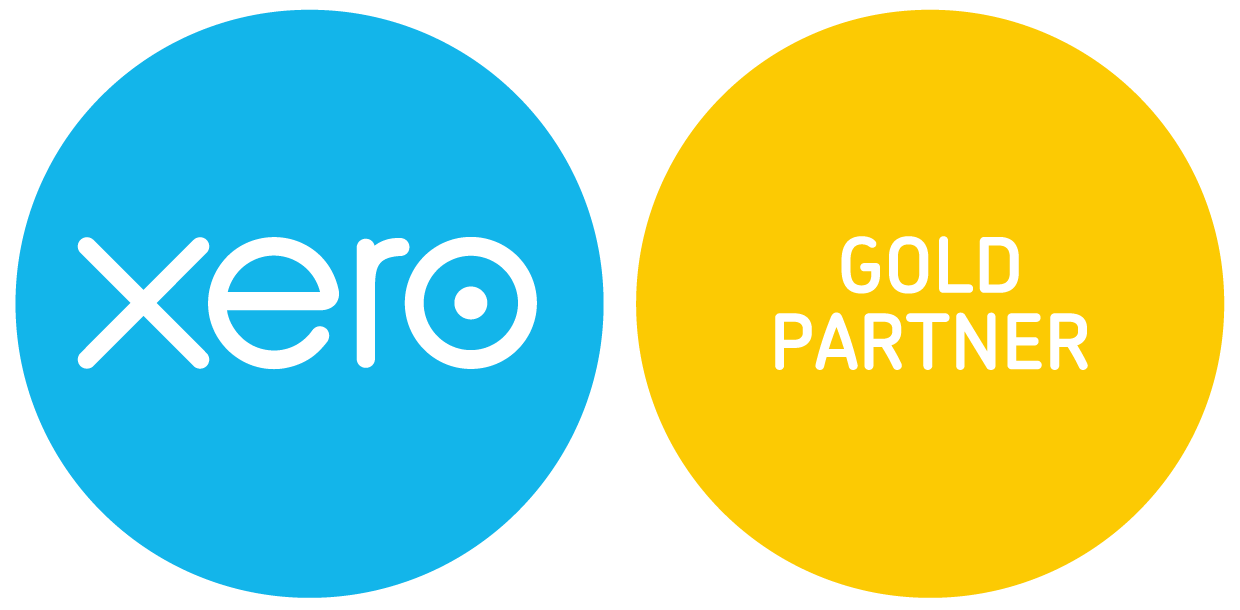2024 Year End Tax Planning Guide (Part 2)

.
This is Part 2 and focuses on key strategies to manage your tax bill. Both Part 1 and 2 will cover the following and all are worth spending some time to review and think about how your business can organise your affairs in these areas.
Areas of tax planning to be considered:
- Key Tax Minimisation Strategies. (added to website last month)
- Round Up of Other Year End Tax Issues.
- Other Tax Effective Strategies for Businesses to Consider.
- Superannuation Tax Planning Opportunities.
- Immediate Write Off & Temporary Full Expensing for Individual Small Business Assets.
Immediate Write-Off For Individual Small Business Assets & Temporary Full Expensing
This bit could be wrong. Bill is before Parliament that will temporarilty increase limit to $20,000 but Opposition amended to $30,000 but either yet to pass into law and this has to be spent before 30-6-2024. ‘As it stands, businesses with a turnover of less than $10 million can claim the instant asset write-off for assets valued less than $1,000 and that are first used or installed between July 1, 2023 and June 30, 2024.’
From July 1, 2023, the instant asset write-off threshold is now a maximum of $20,000. revert to $1,000 from July 1, 2023.. Conditions for accessing the $20,000 instant asset write-off threshold for small business entities in the 2024 income year include:
- It only relates to Plant, Equipment and Vehicles. It does NOT relate to Capital improvements to buildings.
- The items can be new or second hand. You can have paid cash or they can be financed.
- The entity must operate a business during the 2024 income year.
- Its aggregated annual turnover must be under $10 million, based on either the current or previous year's figures.
- Choosing to apply the simplified depreciation rules for the 2024 income year is necessary.
- The asset's cost must be less than $20,000.
- The asset must be first used, or installed and ready for use, for a taxable purpose between July 1, 2023, and June 30, 2024.
It's crucial to understand that if a small business entity opts out of applying the simplified depreciation rules for the 2024 income year, they won't have access to the instant asset write-off rules, regardless of meeting other basic conditions.
The instant asset write-off threshold applies per asset, allowing small business entities to potentially deduct the full cost of multiple assets throughout the 2024 year, provided each asset's cost is less than $20,000. Additionally, the $20,000 threshold applies to determining whether the full pool balance is written off in the 2024 income year.
Eligible assets for the instant asset write-off rules are those falling within the depreciation provisions. Capital improvements to buildings under the capital works rules are excluded. Assets costing $20,000 or more, which cannot be immediately deducted, can still be included in the small business general pool and depreciated at 15% in the first income year and 30% in subsequent income years.
Checklist of Other Year End Tax Issues
In addition to the tax planning opportunities, there are a number of obligations in relation to the end of the financial year which should be considered:
If you use a Motor Vehicle in producing your income you may need to:
- Record Motor Vehicle Odometer readings at 30 June 2024
- Prepare a log book for 12 continuous weeks if your existing one is more than 5 years old. Please note, if you commence the logbook prior to June 30, 2024, the usage determined will still be appropriate for the whole of 2024/25. As such, it is not too late to start preparing one for the current financial year. (Tip – the ATO has an App that can assist with keeping records such as business use logbooks - https://www.ato.gov.au/General/Online-services/ATO-app/myDeductions/?=Redirected_URL
If you have started an account-based pension:
Ensure that you have withdrawn the annual minimum required.
If you are in business or earn your income through a Company or Trust:
- Employer Compulsory Superannuation Obligations:
The deadline for employers to pay Superannuation Guarantee Contributions for the 2023/24 financial year is the 28 July 2024. However, if you want to claim a tax deduction in the 2023/24 tax year the super fund (or Small Business Superannuation Clearing House) must receive the contributions by 30 June 2024. You should therefore avoid making contributions at the last minute because processing delays could deny you a significant tax deduction in this financial year.
- For Private Company - Div 7A Loans - Business owners who have borrowed funds from their company in prior years must ensure that the appropriate principal and interest loan repayments are made by 30 June 2024. Current year loans must be either paid back in full or have a loan agreement entered into before the due date of lodgement of the company return. Failure to comply risks having it counted as an unfranked dividend in the individual’s tax return
- Trustee Resolutions - ensure that the Trustee Resolutions on how the income from the trust is distributed to the beneficiaries are prepared and signed before June 30, 2024 for all Discretionary (“Family”) Trusts. If a valid resolution hasn’t been executed by this date, the default beneficiaries become entitled to the trust’s income and are then subject to tax. Income derived but not distributed by the trust will mean the trust will be assessed at the highest marginal rate on this income.
- Preparation of Stock Count Working Papers at June 30, 2024.
- Preparation and reconciliation of Employee PAYG Payment Summaries (formerly known as Group Certificates). Note you are not required to supply your employees with payment summaries for amounts you have reported and finalised through Single Touch Payroll.
From 1 July 2024:
The compulsory Super Guarantee Contribution rate increases from 11 % to 11.5% from July 1, 2024.
Company Tax Rates For Small Businesses
The company tax rate for base rate entities with less than $50 million turnover was 25% for the 2024 financial year where it as:
- An aggregated turnover less than the aggregated turnover threshold ($50 million)
- 80% or less of their assessable income is base rate entity passive income – this replaces the requirement to be carrying on a business.
Other Tax Effective Strategies For Businesses
BUSINESSES SHOULD ALSO CONSIDER THE FOLLOWING ITEMS
- Stock Valuation Options - Review your Stock on Hand and Work in Progress listings before June 30 to ensure that it is valued at the lower of Cost or Net Realisable Value. Any stock that is carried at a value higher than you could realise on sale (after all costs associated with the sale) should be written down to that Net Realisable Value in your stock records.
- Write-Off Bad Debts – if you operate on an accruals basis of accounting (as distinct from a cash basis) you should write off bad debts from your debtors listing before June 30. A bad debt is an amount that is owed to you that you consider is uncollectable or not economically feasible to pursue collection. Unless these debts are physically recorded as a ‘bad debt’ in your system before 30th June 2024, a deduction will not be allowable in the current financial year.
- Repairs and Maintenance Costs – Where possible, and cash flow allows, consider bringing these repairs forward to before June 30. If you don’t understand the distinction between a repair and a capital improvement please consult with us because some capital improvements may not be tax deductible in the current year and could be claimable over a number of years as depreciation.
- Obsolete Plant and Equipment - should be scrapped or decommissioned prior to June 30, 2024 to enable the book value to be claimed as a tax deduction.
Superannuation Tax Planning Opportunities
CONCESSIONAL CONTRIBUTION CAP OF $27,500 FOR EVERYONE
The tax-deductible superannuation contribution limit or cap is $27,500 for all individuals regardless of their age for the 2023/24 financial year. This will be increased to $30,000 from the 1st July 2024.
If eligible and appropriate, consider making the most of your 2023/24 financial year annual concessional contributions cap with a concessional contribution. Note that other contributions such as employer Superannuation Guarantee Contributions (SGC) and salary sacrifice contributions will have already used up part of your concessional contributions cap.
CARRY FORWARD CONCESSIONAL CONTRIBUTIONS
If your total superannuation balance as at June 30, 2023 was less than $500,000 you may be in a position to carry-forward unused concessional caps for up to 5 years.
Members can access their unused concessional contributions caps on a rolling basis for five years and amounts carried forward that have not been used after five years will expire.
The advantage of making the maximum tax-deductible superannuation contribution before June 30, 2024 is that superannuation contributions are taxed at between 15% and 30%, compared to personal tax rates of between 32.5% and 45% (plus 2% Medicare levy) for an individual taxpayer earning over $45,000.
Typically, self-employed individuals and those who earn their income primarily from passive sources like investments make their super contributions close to the end of the financial year to claim a tax deduction. However, individuals who are employees may also use this strategy and those who might want to take advantage of this opportunity.
NON -CONCESSIONAL SUPER CONTRIBUTIONS
If eligible and appropriate, consider utilising all or part of your 2023/24 financial year annual non-concessional contributions cap by making a non-concessional contribution for up to $110,000 for the 2024 financial year. This will be increased to $120,000 from 1 July 2024.
If you are not currently in a non-concessional contributions bring forward period, consider whether you may be in a position to ‘bring-forward’ your non-concessional contributions caps for the 2024/25 and 2025/26 financial years.
GOVERNMENT CO-CONTRIBUTION TO YOUR SUPERANNUATION
The Government co-contribution is designed to boost the superannuation savings of low and middle-income earners who earn at least 10% of their income from employment or running a business. If your income is within the thresholds listed in the table below and you make a ‘non-concessional contribution’ to your superannuation, you may be eligible for a Government co-contribution of up to $500.
To be eligible you must be under 71 years of age as at June 30, 2024. In 2023/24, the maximum co-contribution is available if you contribute $1,000 and earn $43,445 or less. A lower amount may be received if you contribute less than $1,000 and/or earn between $42,016 and $57,016.
The matching rate is 50% of your contribution and additional eligibility include: having a total superannuation balance of less than $1.9 million on 30 June of the year before the year the contributions are being made having not exceeded your non-concessional contributions cap in the relevant financial year.
TRANSITION TO RETIREMENT
If you don’t want to fully retire and would like to reduce your working hours you can take advantage of what is known as “Transition to Retirement" TTR. This means that providing you have reached your preservation age you can elect to keep working full time or part- time and take money out of your super to supplement your income. This is popular for those who want to scale down their working hours rather than retiring.
Date of Birth Preservation Age
Before 1 July 1960 55
1 July1960 - 30 June 1961 56
1 July 1961 - 30 June 1962 57
1 July 1962 - 30 June 1963 58
1 July 1963 - 30 June 1964 59
1 July 1964 - 30 June 1965 60
When you are receiving a TRT pension you can still work and claim a tax deduction for concessional contributions into super currently $27,500 for the 2024 financial year, and then increasing to $30,000 from the 1st July 2024..
If you decide to implement a TTR strategy, you must withdraw a minimum amount currently 4% for someone aged 60 (based on age) from your superannuation account balance up to a maximum of 10%. .
If you are under 60 any amount you withdraw will be subject to tax at your marginal rate of tax. You will also be entitled to receive a tax rebate of 15%. After the age of 60, the good news is that any amount you withdraw is TAX FREE!
Case Study 1 : Bill reduces his work hours
Bill just turned 60 and earns $50,000 a year before tax. He decides to ease into retirement by reducing his work to three days a week. This means his income will decrease to $30,000. Bill transfers $155,000, of his super to a transition to retirement pension and withdraws $9,000 each year, tax-free. This replaces some of his lost pay.
Case Study 2: Sue reduces her tax
Sue is 60 and earns $100,000 a year. She intends to keep working full-time for at least another five years. Sue transfers $200,000 from her super to an account-based pension so she can start a TTR strategy,
She salary sacrifices into his super. This will reduce her income tax, but also hers take-home pay. She tops up her income by withdrawing up to 10% of her TTR pension balance each year.
As you can see the TRT strategy is very useful for people wanting to work less and supplement their income by drawing from superannuation.
ACCOUNTS BASED PENSIONS
If you are aged 60 + and retired or 65+ and still working, There are significant tax advantages in taking an Accountants Based Pension from your super. Not only are the withdrawals you make tax-free, but also the earnings within your superannuation fund are tax-free to 1.9 million dollars.
Although you must withdraw, the minimum amount must be paid each year for pensions as per the table below, there are no limits on the amount you can withdraw.
The minimum amount for ages:
Under 65 is 4%
65 to 74 is 5%
75 to 79 is 6%
80 to 84 is 7%
To put in place an accounts-based pension, you will need to speak to your superannuation fund provider.
SELF-MANAGED SUPERANNUATION
A Self-Managed Superannuation Fund (SMSF) can provide significant tax savings, but they don’t suit everyone. There are significant regulations surrounding the management and administration of SMSF’s. With the end of the financial year approaching, now is a good time to discuss the pros and cons of establishing your own SMSF. It might be appropriate to establish a SMSF in conjunction with other tax planning opportunities.


